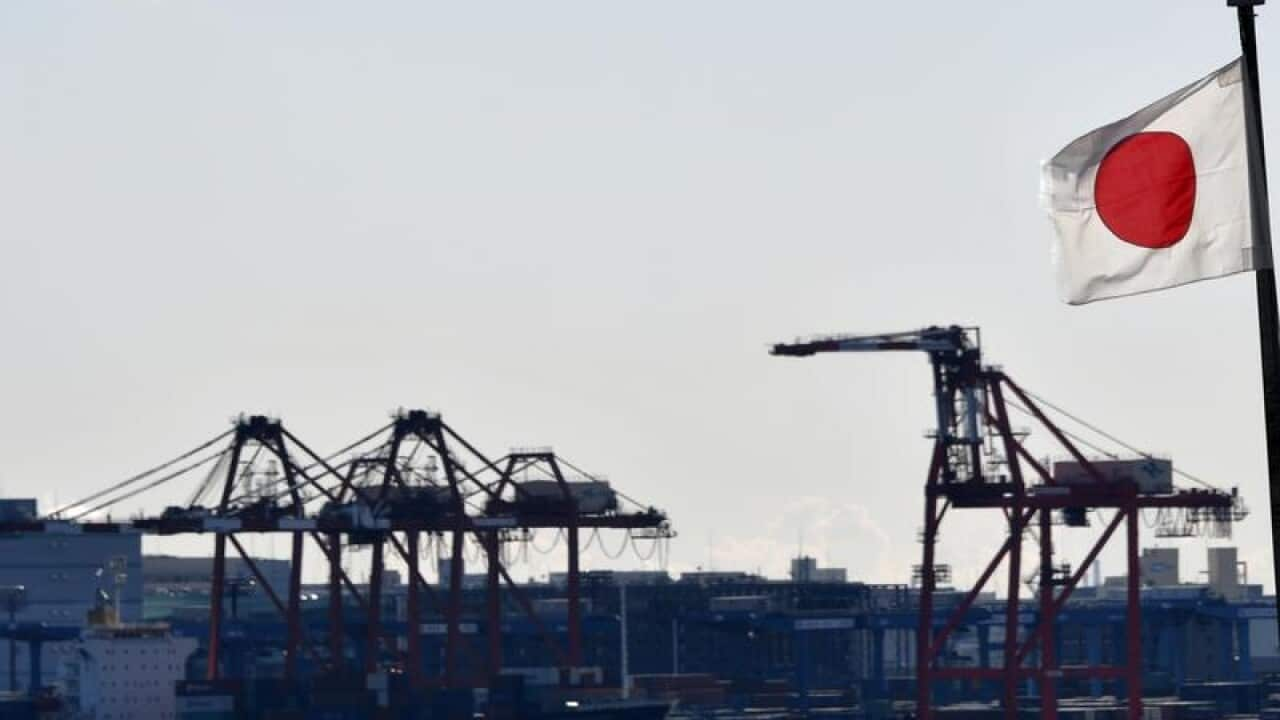Malcolm Turnbull has taken a small victory lap as a landmark trade deal between Australia and five other countries has gone into effect.
The TPP-11, a revamped version of the Trans-Pacific Partnership, went into force at 12am on Sunday for Australia, New Zealand, Canada, Japan, Mexico and Singapore, slashing tariffs across much of the Asia-Pacific region.
Vietnam will follow on January 14, while Brunei, Chile, Malaysia and Peru will begin 60 days after they complete their ratification process.
Turnbull on Saturday posted a picture of himself with Japanese Prime Minister Shinzo Abe and their spouses by the Sydney Harbour Bridge, apparently taken from Kirribilli House.
Turnbull wrote that nearly two years ago in Sydney he and Abe determined to keep the TPP alive after Donald Trump pulled out.
At the time time most analysts and headline-writers were declaring the trade deal dead without US participation, but the other nations resurrected it.
Turnbull thanked Abe, Singapore Prime Minister Lee Hsien Loong, New Zealand Prime Minister Jacinda Ardern "& other TPP-11 leaders for defying the dead end of protectionism! More trade means more jobs."
In a follow up tweet Turnbull thanked then-New Zealand prime minister John Key as a strong voice for keeping TPP on track, pointedly failing to mention Canadian Prime Minister Justin Trudeau.
Replying to Turnbull, a Canadian reporter mentioned how Australian officials were reportedly "gobsmacked" by Canada's behaviour after their delegation skipped a planned meeting with other TPP members on the sidelines of the Asia-Pacific Economic Forum on Vietnam.
"Let's just say there were varying degrees of enthusiasm for TPP-11 in terms of constancy and intensity," Turnbull said in reply. "But we got it done, despite the doomsayers."
Across the Ditch, New Zealand Trade Minister David Parker lauded the agreement for giving New Zealand access to markets in Japan, Canada and Mexico.
"The CPTPP has the potential to deliver an estimated NZ$222 million (A$211.5m) of tariff savings to New Zealand exporters annually once it is fully in force."
Investment bank HSBC said in a press release that 90 per cent of tariffs on goods in the first six countries were removed on Sunday in the first round of cuts.
American wheat and beef producers have been particularly unhappy about being left out of the deal, expecting Australian and Canadian farmers to use their TPP advantage to sell more to Japan.
"Japan is generally a market where we seek to maintain our strong 53 per cent market share, but today we face an imminent collapse," US Wheat Associates President Vince Peterson told a public hearing held by the US Trade Representative earlier this month.
"Frankly, this is because of provisions negotiated by (former US president Barack Obama's administration) for our benefit under the Trans-Pacific Partnership.
"Our competitors in Australia and Canada will now benefit from those provisions, as US farmers watch helplessly."










